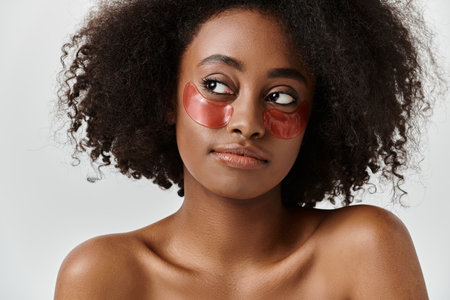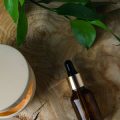1. Sun Exposure Habits
When it comes to hyperpigmentation, how you handle sun exposure can make a big difference. Many Americans love spending time outdoors—whether its at the beach, hiking, playing sports, or even just enjoying a backyard barbecue. But did you know that unprotected or prolonged exposure to the sun can actually worsen dark spots and uneven skin tone?
How Sun Exposure Affects Hyperpigmentation
Ultraviolet (UV) rays from the sun trigger your skin to produce more melanin, which is the pigment that gives your skin its color. When your skin already has areas with excess melanin—like dark spots or patches—being in the sun without protection can make those areas even darker.
Common Outdoor Activities and Sun Exposure Risk
| Activity | Average Time Spent Outdoors | Sun Protection Needed? |
|---|---|---|
| Beach Day | 2-6 hours | High |
| Hiking | 1-4 hours | High |
| Sports Practice/Games | 1-3 hours | High |
| Backyard BBQs/Parties | 1-5 hours | Moderate to High |
| Daily Errands (walking, driving) | 30 minutes – 2 hours | Moderate |
The Importance of Daily Sunscreen Use
No matter your age or skin type, daily sunscreen is a must—even on cloudy days or if you’re mostly indoors but near windows. Dermatologists recommend using a broad-spectrum sunscreen with SPF 30 or higher and reapplying every two hours when outside. This simple habit helps prevent existing hyperpigmentation from getting worse and protects against new dark spots.
2. Diet and Nutrition
How What You Eat Can Affect Hyperpigmentation
Many people don’t realize that their daily food choices can have a direct impact on skin health, including hyperpigmentation. In the U.S., busy lifestyles often lead to grabbing fast food, sugary snacks, and processed meals—foods that might not be the best for your skin.
Common American Eating Habits That May Influence Skin Pigmentation
| Food Type | Potential Impact on Skin | Examples in American Diet |
|---|---|---|
| High-Sugar Foods | May trigger inflammation, leading to increased pigmentation or dark spots | Sodas, donuts, candy bars |
| Lack of Antioxidants | Reduces skin’s defense against UV damage, making hyperpigmentation worse | Few fruits/vegetables, lots of processed foods |
| Dairy and High-Glycemic Foods | Might increase hormones and oil production, which could worsen pigmentation issues for some people | Pizza, white bread, ice cream |
The Role of Antioxidants and Nutrient-Rich Foods
Your skin loves antioxidants! Vitamins like C and E help defend against free radicals (unstable molecules that damage skin cells). Unfortunately, traditional American diets sometimes lack these nutrients due to a focus on quick, convenient meals.
- Vitamin C: Found in oranges, strawberries, and bell peppers—great for brightening skin.
- Vitamin E: Present in nuts and seeds—helps protect skin from sun damage.
- Zinc: Found in beans and lean meats—supports skin healing.
Simple Tips for Better Skin Through Diet
- Add more colorful fruits and veggies to your plate.
- Choose whole grains over white bread or pasta.
- Swap out sugary drinks for water or herbal teas.
- Snack on nuts instead of chips or candy.
A few changes to your eating habits can make a big difference in how your skin looks and feels. While everyone’s skin is unique, being mindful about what you eat is a helpful step toward managing hyperpigmentation.

3. Stress and Lack of Sleep
In today’s fast-paced American lifestyle, it’s common to feel stressed or run on too little sleep. But did you know that chronic stress and poor-quality sleep can actually make hyperpigmentation worse? Let’s break down how this happens and what you can do about it.
How Stress Impacts Your Skin
When youre stressed, your body releases more of the hormone cortisol. High levels of cortisol can trigger inflammation and increase melanin production—the pigment responsible for dark spots. Over time, this hormonal imbalance can lead to more visible hyperpigmentation, especially if you’re already prone to it.
Common Sources of Stress in American Life
| Source of Stress | Example |
|---|---|
| Work Pressure | Tight deadlines, long hours |
| Family Responsibilities | Childcare, eldercare, household chores |
| Financial Concerns | Bills, debts, unexpected expenses |
| Social Media & News | Information overload, comparison anxiety |
Lack of Sleep and Skin Health
Poor sleep is another big factor. When you don’t get enough restful sleep, your skin doesn’t have a chance to repair itself overnight. This can slow down cell turnover, making dark spots stay longer. Plus, sleep deprivation also raises cortisol levels, which—as mentioned above—can worsen hyperpigmentation.
Signs You Might Not Be Sleeping Well Enough:
- Feeling tired during the day
- Trouble falling or staying asleep at night
- Puffy eyes or dull-looking skin in the morning
- Cravings for sugary or caffeinated drinks to stay awake
Simple Ways to Reduce Stress and Improve Sleep
If you want to help your skin look its best, taking steps to manage stress and improve your sleep is key. Try setting aside time each day for relaxation—like meditation, yoga, or even just a walk outside. Creating a bedtime routine (for example: turning off screens an hour before bed) can also help you wind down and get better rest.
4. Incorrect Skincare Practices
When it comes to hyperpigmentation, the way you care for your skin every day can make a big difference. Many common skincare mistakes—especially those popular in Western beauty routines—can actually make dark spots and uneven skin tone worse.
Over-Exfoliation
Exfoliating helps remove dead skin cells and brighten the complexion, but doing it too often or using harsh scrubs can strip away your skin’s protective barrier. This can lead to irritation, redness, and increased sensitivity, making hyperpigmentation more noticeable over time.
Misuse of Strong At-Home Products
Powerful products like retinoids, acids (such as glycolic or salicylic acid), and high-strength vitamin C serums are easy to find in stores and online. While these ingredients can help with pigmentation when used correctly, overusing them or layering too many actives at once can damage your skin. This may cause inflammation or chemical burns, which trigger even more pigment production as your skin tries to heal itself.
Common At-Home Product Mistakes
| Mistake | Impact on Hyperpigmentation |
|---|---|
| Using multiple exfoliants together | Irritation leads to more dark spots |
| Skipping instructions on strong products | Increases risk of burns and post-inflammatory pigmentation |
| Not doing a patch test before use | Unexpected reactions worsen discoloration |
Neglecting Moisturization
A lot of people focus on treatments for pigmentation and forget about moisturizing. Dry, dehydrated skin is less able to repair itself, making it more prone to irritation and slow healing from sun or product damage. When your skin barrier is weak, any dark spots will look more obvious and take longer to fade.
Why Moisturizing Matters
- Keeps the skin barrier healthy and resilient
- Helps prevent new pigmentation from forming due to irritation
- Makes active ingredients work better without side effects
Takeaway: Small Habits Add Up
Paying attention to how you exfoliate, use strong skincare products, and keep your skin hydrated can go a long way in helping your hyperpigmentation. Sometimes less is more—be gentle with your skin and always listen to what it needs.
5. Smoking and Alcohol Consumption
How Smoking Impacts Hyperpigmentation
Smoking is a common habit in many American cities, especially in social settings or stressful environments. But did you know that lighting up a cigarette can make your dark spots worse? Smoking reduces blood flow to the skin, which means less oxygen and fewer nutrients reach the surface. This slows down your skin’s natural healing process and can trigger more melanin production, making hyperpigmentation spots look darker and last longer.
Effects of Smoking on Your Skin
| Effect | How It Worsens Hyperpigmentation |
|---|---|
| Reduced Blood Flow | Slows skin cell turnover and healing of dark spots |
| Toxin Exposure | Irritates skin and increases inflammation, leading to uneven pigmentation |
| Increased Free Radicals | Damages skin cells, making discoloration more likely to linger |
The Role of Alcohol in Skin Discoloration
Frequent alcohol use is also common in American nightlife and social gatherings. While a drink now and then may seem harmless, regular alcohol consumption can dehydrate your skin and weaken your body’s ability to repair itself. Alcohol causes inflammation throughout the body, including your skin, which may worsen existing hyperpigmentation or make new patches appear.
Alcohol’s Impact on Hyperpigmentation
| Alcohol Effect | Result for Your Skin |
|---|---|
| Dehydration | Makes dark spots appear more prominent due to dry, dull skin texture |
| Liver Strain | Reduces detoxification, leading to buildup of toxins that affect skin tone |
| Inflammation Boost | Triggers flare-ups in conditions like melasma or post-inflammatory hyperpigmentation (PIH) |
Everyday Choices Add Up!
If you’re dealing with stubborn hyperpigmentation, take a look at your lifestyle habits. Cutting back on smoking and alcohol can help your skin recover faster and may prevent dark spots from getting worse. Making small changes in your daily routine could be the extra boost your skincare regimen needs.


